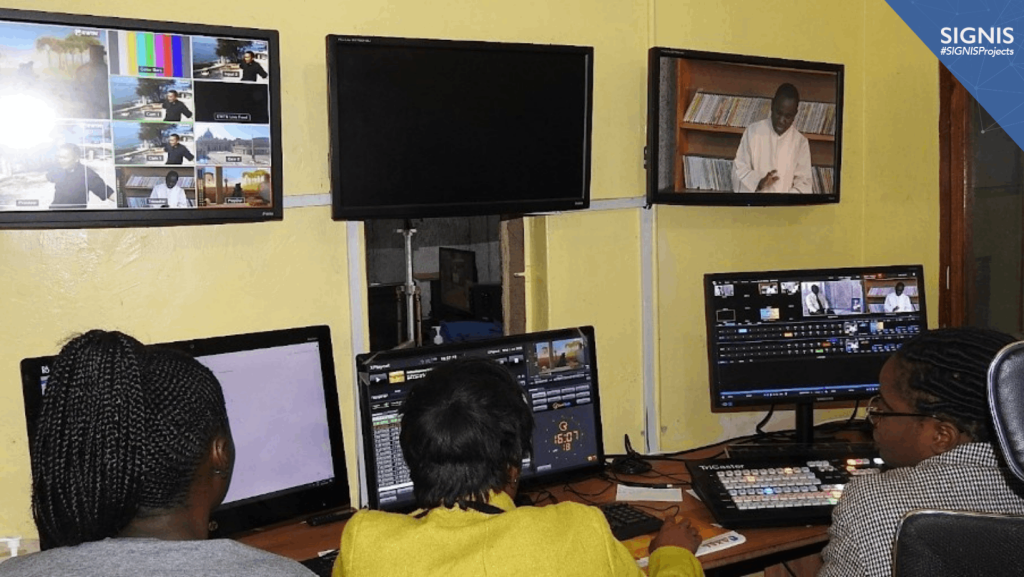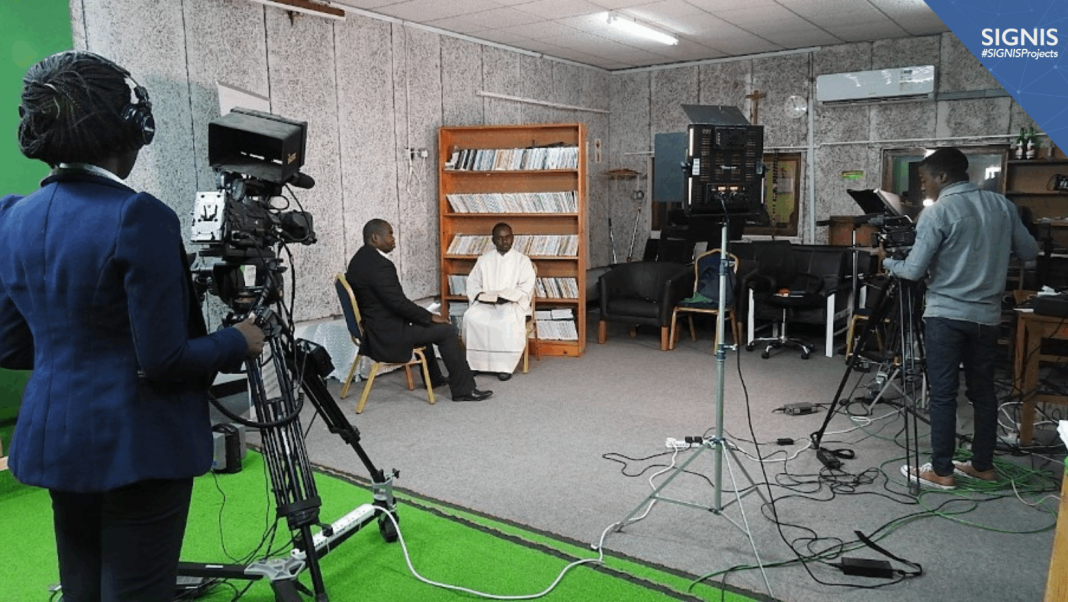Three years ago, the Zambia Episcopal Conference launched a television-broadcasting project called Lumen TV-Z with the financial support of the Italian Catholic Bishops Conference, hoping to “promote human dignity and relevant programmes for the integral evangelisation and development of the Zambian society”. In 2020, Fr. Winfield Kunda led a funding project to purchase studio equipment after receiving subsidies from the Pontifical Society of the Propagation of the Faith (PSPF) through SIGNIS. In this article, he explains how the equipment received helped the broadcasting station in its efforts to promote human dignity by communicating the Catholic faith.
Could you tell us more about the project’s human impact on your community?
Fr. Winfield Kunda: Viewers of Lumen TV can now watch programmes such as the celebration of mass from different locations outside the studios. In this COVID-19 pandemic, Lumen TV Zambia viewers have been nourished spiritually from the spiritual programmes we produced using the equipment bought.
What can you tell us about the community where the project took place?
Lumen TV-Z is broadcasting in the Lusaka province, the capital city of Zambia, and its surrounding areas. It is a cosmopolitan city with a diverse community from different ethnic and tribal backgrounds.
The official language spoken is English though Nyanja, a local dialect of the language from the Eastern Province of Zambia, is also used. The Lusaka province accounts for the largest number of households (approximately 717,000) and has a population of around 3,126,500; thirty-eight per cent of the households own television sets. There are an estimated 1.5 million Catholics in the province.
The economy of Zambia fell into a deep recession following the COVID–19 pandemic, which resulted in an unprecedented deterioration in the key sectors of the economy.
What were your main objectives with this project?
Our main objective was to capture and broadcast content on the spot, such as ordination masses, religious professionals, and other functions outside of the studios. In the past, we had to go out, record, and then come back to the studio to edit the materials, which meant we could only broadcast content that was already stale.
Is there an anecdote that you recall from these last months?
When implementing the project, we needed to train our staff on using the equipment, which we did. However, we quickly realised that our technical team needed more time to learn how to use the equipment. With the support from people who had the necessary expertise, we managed to start using the equipment accordingly.
Why do you think PSPF should continue to support these types of projects?
The Episcopal Conference in Zambia has prioritised TV, radio, Internet, and social media as evangelisation tools for the Church. However, it is limited in its financial capacity to support media apostolate in its entirety. Catholic Media apostolate is still growing in Zambia, and the support for media is vital for the Church’s evangelisation efforts.
The funding also helps us establish our presence as Catholics on media platforms. Evangelicals and protestants have invested heavily in audio and visual evangelism on TV, radio and social media and are way more present than us Catholics. Ultimately, the funds received contribute to having Catholics counteracting the Christian fundamentalism and proselytism that come from these sources.
Every year, SIGNIS screens project applications on media training, equipment, and production for subsidies from the Pontifical Society of the Propagation of the Faith (PSPF). In 2020, we launched the signisprojectapplication.net online portal, successfully switching from a paper-based to a fully digital application process and making it easier for applicants from all over the world to submit their projects.



